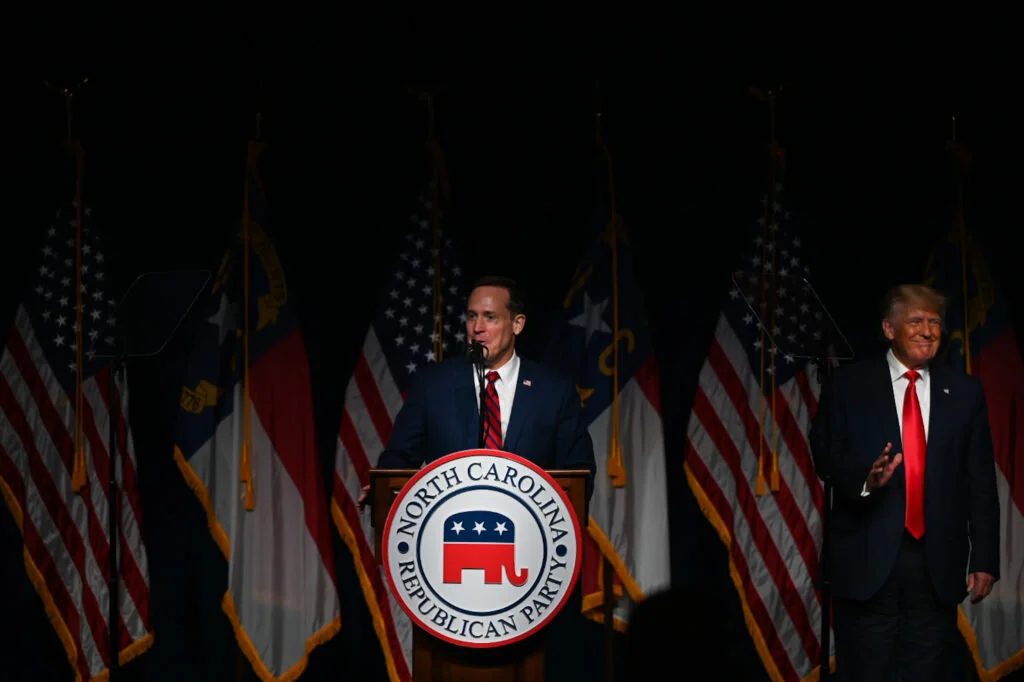Carolinians remain fiscal conservatives
By John Hood
RALEIGH — North Carolinians are closely divided when it comes to party preference. Our state has long been one of America’s key political battlegrounds. But when it comes to managing the state’s finances, the conservatives in charge of the state legislature are in tune with prevailing public sentiment.
Those are among the findings of the John Locke Foundation’s most-recent Civitas Poll, taken in early May. Asked which parties’ candidates they will likely support in congressional and legislative races next year, likely North Carolina voters split their picks almost evenly, with only a narrow, statistically insignificant advantage for the GOP. These same voters gave Gov. Roy Cooper a 10-point edge in job approval (53% to 43%), even as they diverged on President Joe Biden (49% disapproved, 48% approved).
When it comes to fiscal matters, however, North Carolina voters exhibit a more-pronounced conservative lean. For example, the survey team asked respondents the following question: “Generally speaking, would you say you favor smaller government with fewer services and lower taxes OR larger government with higher taxes and more services?” Those favoring smaller government constituted 57% of the sample, while advocates of larger government made up 33%.
Later in the poll, respondents were asked about the Taxpayer Bill of Rights, a proposed amendment to North Carolina’s constitution that would “limit the growth of state spending to inflation plus population growth, require yearly deposits in a savings reserve or unfunded-liability reserve, return excess revenue to taxpayers, and submit tax increases to a vote of the people.” Only 22% said they were against TABOR, with 56% in favor and the rest unsure.
I think this amendment is a good idea, too. But it’s important to recognize that the Republican-led General Assembly has generally been following its provisions anyway, even though they are under no legal obligation to do so.
That’s not an argument against placing a TABOR measure in the state constitution. Future legislatures may not be so responsible. They may follow the practice of most legislatures before 2010 — increasing inflation-adjusted, per-person spending by a rapid clip, and then raising taxes to cover deficits during economic downturns.
So why point out that North Carolina is already complying with the provisions of TABOR? Because it challenges one of the arguments that progressive critics make against it, that keeping annual budget growth below a spending cap would create fiscal chaos and destroy core public services. We know it won’t, because it hasn’t.
By no means do the findings of this poll, or any other, suggest North Carolinians are doctrinaire when it comes to tax and spending questions. They are more open to targeted tax incentives for big corporations than free-market activists would like. And while they endorse fiscal conservatism in general, many voters would also say they favor higher spending on education and other programs.
These are not contradictions. They are tensions. All of us — even politicians! — are human beings. That means that we all have goals and desires that can be in tension with each other.
Many of us wish to lose weight, for example, and try to stick to a diet. Then someone offers us a wonderful treat and we make an exception “just this once” (but not really just once). Or we construct a household budget that, if strictly adhered to, will allow us to take a long family vacation, buy a new house, or increase our savings for retirement. And then we don’t adhere to it as strictly as we planned.
Because all of us share this quirk of human nature, we create institutions to limit the potential damage of yielding to “exceptional” temptations. In state government, we divide power between a House and Senate. We give governors a veto. We divide executive authority among several officeholders, including a state auditor to scrutinize the budget. We require a vote of the people to issue general-obligation debt.
Most North Carolinians favor adding another check against excessive spending: a Taxpayer Bill of Rights. They’re just being conservative. Good for them.



